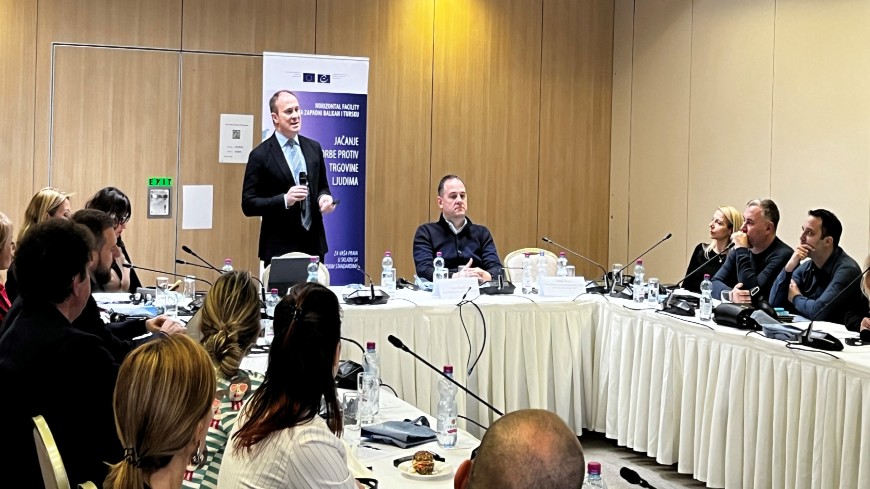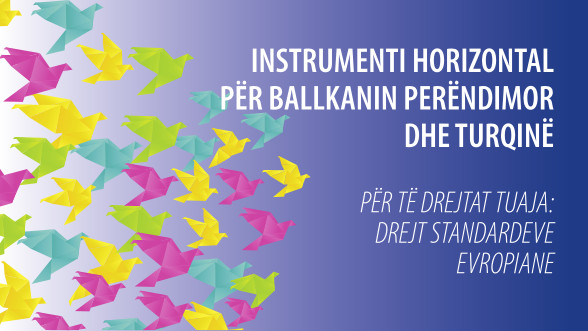The criminal landscape of trafficking in human beings has significantly changed with the increasing availability of technology and access to the Internet and social media. Traffickers use technology for recruiting, exploiting, and controlling victims, without being near to the place where the crime is committed. It has become more difficult to spot and investigate human trafficking, prosecute traffickers, and assist victims. To keep up with these challenges, law enforcement authorities and legal professionals involved in combating human trafficking in Serbia need to build their knowledge and capacities and enhance their co-operation to be able to tackle the cases of technology-facilitated trafficking.
With the aim of supporting relevant actors in the field, the joint European Union and Council of Europe action “Strengthening anti-trafficking action in Serbia” organised a workshop on combating technology-facilitated trafficking in human beings. It gathered 27 participants – representatives of Ministry of Interior, Prosecutor’s Office, National Rapporteur on Trafficking in Human Beings Office, Centre for the Protection of Human Trafficking Victims, social care system, labour inspectors, and civil society organisations. Professor Paolo Campana from the University of Cambridge presented the GRETA’s report on “Online and technology-facilitated trafficking in human beings” which provides analysis and guidance on how to enhance the criminal justice response by improving the detection, investigation and prosecution of technology-facilitated trafficking in human beings.
The participants discussed the impact of modern communication technology on human trafficking in Serbia and beyond. The discussions confirmed that combating this phenomenon requires a multi-stakeholder engagement, good technical equipment, and innovative solutions to collect, understand and use digital evidence in criminal proceedings. Public-private partnerships with tech companies can only help in this regard. On the other hand, it is worth noting that technology is also an opportunity to get and assist as soon as possible victims. The artificial intelligence and tech tools can facilitate the identification of victims and the dissemination of information to at-risk communities through helplines and applications. Co-operation with specialised civil society organisations is of paramount importance to advance the state’s response to human trafficking online.
The participants were determined to use the cumulated intelligence and experience in order to enhance the criminal justice response to technology-facilitated human trafficking in Serbia, and by this they will also contribute to one of the recommendations of GRETA in its third evaluation report on Serbia. Namely, the report urges the authorities of Serbia to conduct proactive and prompt investigations of instances of human trafficking and make use of all possible evidence, including digital evidence, so that there is less reliance on testimony by victims or witnesses.
The action “Strengthening anti - trafficking action in Serbia” is part of the European Union/Council of Europe joint programme “Horizontal Facility for the Western Balkans and Türkiye”. It aims at strengthening prevention of trafficking in human beings, identification, and protection of victims of trafficking, prosecution and conviction of traffickers, and access to remedies for victims of trafficking.



